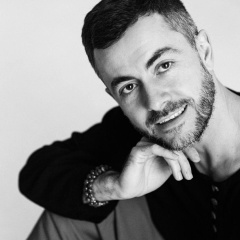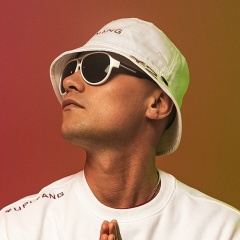Из Фейсбука Захара Прилепина
Очередная вилка прогрессивного сознания.
Если кому-то вздумается что-то сказать (написать) — исключительно по факту — о сталинских временах — ну, например, про арктические исследования, научные прорывы, мужество и героизм, Чкалова, Станиславского и хор Александрова, сталинские премии Анатолию Рыбакову и Трифонову, всеобщее образование, полярников и стахановцев — нам тут же скажут:
- А в это время крестьяне умирали с голоду, Берия воровал для утех москвичек с улицы, а на Лубянке били Рокоссовского.
Чаще всего правда. В это время, чуть раньше или чуть позже, именно так и было.
Но вот прогрессивный человек рассказывает, какое удивительное время было в 90-е, какая свобода на телевидение, какие арт-проекты, какое ощущение свободы и раскрепощённости, а в магазинах — сыр, колбасы, устрицы, а в других магазинах, наконец-то, Набоков и Бродский... и ты вдруг ему говоришь:
- А в это время была гражданская война в Таджикистане, да и ещё в десяти местах, где погибли сотни тысяч человек — сотни, слышите, тысяч! - и откуда-то появилось до четырёх миллионов нищих, без жилья, и они все, прямо говоря, передохли, а ещё миллиона два беспризорников, и они почти все скололись и были похоронены кто где и кое-как, а к концу 90-х выяснилось, что у нас страна один из мировых лидеров по работорговле и торговле органами, а ещё расцвели такие болезни, каких даже в Гражданскую войну не было, а ещё русские девки стали ходовым товаром во всех мировых борделях, а ещё у нас украли на триллионы народного имущества и военных секретов...
Но если ты всё это будешь перечислять, то на тебя посмотрят, как на мудака, потому что ты не по делу тут влез, и вообще мешаешь одно с другим.
Между тем, мешать одно с другим могут только они, прогрессивные люди. А ты можешь только внимать.
Внимай! 30-е или 50-е — это смерть, смерть и смерть, а 90-е — это жизнь, жизнь и жизнь.
Почему? Потому что в 90-е они жили, и никаких особенных там гражданских войн, смертей, бомжей и работорговли не заметили — напротив, всё было весело, и клубов много открылось тогда прикольных, и Влад Листьев был в телевизоре, и произошла первая поездка на курорт.
А в 30-е они не жили, но им Радзинский всё рассказал - какое там было поголовное советское рабство и вообще кошмар исключительный, который заменил жизнь целиком. И если кто-то из живших в те времена кошмара и рабства не заметили — значит, они были слепцы.
Такой подход называется у нас критическим, прогрессивным и цивилизованным.
А ты, мракобес, стой в стороне и знай своё место.
Очередная вилка прогрессивного сознания.
Если кому-то вздумается что-то сказать (написать) — исключительно по факту — о сталинских временах — ну, например, про арктические исследования, научные прорывы, мужество и героизм, Чкалова, Станиславского и хор Александрова, сталинские премии Анатолию Рыбакову и Трифонову, всеобщее образование, полярников и стахановцев — нам тут же скажут:
- А в это время крестьяне умирали с голоду, Берия воровал для утех москвичек с улицы, а на Лубянке били Рокоссовского.
Чаще всего правда. В это время, чуть раньше или чуть позже, именно так и было.
Но вот прогрессивный человек рассказывает, какое удивительное время было в 90-е, какая свобода на телевидение, какие арт-проекты, какое ощущение свободы и раскрепощённости, а в магазинах — сыр, колбасы, устрицы, а в других магазинах, наконец-то, Набоков и Бродский... и ты вдруг ему говоришь:
- А в это время была гражданская война в Таджикистане, да и ещё в десяти местах, где погибли сотни тысяч человек — сотни, слышите, тысяч! - и откуда-то появилось до четырёх миллионов нищих, без жилья, и они все, прямо говоря, передохли, а ещё миллиона два беспризорников, и они почти все скололись и были похоронены кто где и кое-как, а к концу 90-х выяснилось, что у нас страна один из мировых лидеров по работорговле и торговле органами, а ещё расцвели такие болезни, каких даже в Гражданскую войну не было, а ещё русские девки стали ходовым товаром во всех мировых борделях, а ещё у нас украли на триллионы народного имущества и военных секретов...
Но если ты всё это будешь перечислять, то на тебя посмотрят, как на мудака, потому что ты не по делу тут влез, и вообще мешаешь одно с другим.
Между тем, мешать одно с другим могут только они, прогрессивные люди. А ты можешь только внимать.
Внимай! 30-е или 50-е — это смерть, смерть и смерть, а 90-е — это жизнь, жизнь и жизнь.
Почему? Потому что в 90-е они жили, и никаких особенных там гражданских войн, смертей, бомжей и работорговли не заметили — напротив, всё было весело, и клубов много открылось тогда прикольных, и Влад Листьев был в телевизоре, и произошла первая поездка на курорт.
А в 30-е они не жили, но им Радзинский всё рассказал - какое там было поголовное советское рабство и вообще кошмар исключительный, который заменил жизнь целиком. И если кто-то из живших в те времена кошмара и рабства не заметили — значит, они были слепцы.
Такой подход называется у нас критическим, прогрессивным и цивилизованным.
А ты, мракобес, стой в стороне и знай своё место.
From Facebook Zakhar Prilepin
Another fork of progressive consciousness.
If someone decides to say (write) something - solely in fact - about Stalin's times - well, for example, about Arctic research, scientific breakthroughs, courage and heroism, Chkalov, Stanislavsky and the Alexandrov choir, Stalin prizes to Anatoly Rybakov and Trifonov, general education, polar explorers and Stakhanovites - we will immediately be told:
- And at this time, the peasants were dying of hunger, Beria stole for the comfort of Muscovites from the street, and Rokossovsky was beaten in the Lubyanka.
Most often true. At this time, a little earlier or a little later, that was exactly what happened.
But a progressive person tells what an amazing time it was in the 90s, what freedom on television, what art projects, what a feeling of freedom and emancipation, and in stores - cheese, sausages, oysters, and in other stores, finally, Nabokov and Brodsky ... and suddenly you say to him:
- And at that time there was a civil war in Tajikistan, and in ten more places where hundreds of thousands of people died - hundreds, you hear, thousands! - and from somewhere there appeared up to four million beggars, homeless, and they all, frankly speaking, died, and two million more homeless children, and they almost all chipped off and were buried somewhere and somehow, and by the end of the 90s it turned out that our country is one of the world leaders in the slave trade and organ trade, and such diseases have blossomed that even in the Civil War did not exist, and Russian girls became a hot commodity in all world brothels, and they also stole from us for trillions of folk property and military secrets ...
But if you list all this, then they will look at you like an asshole, because you got in here not on business, and generally interfere with one another.
Meanwhile, only they, progressive people, can interfere with one another. And you can only listen.
Listen! The 30s or 50s are death, death and death, and the 90s are life, life and life.
Why? Because in the 90s they lived, and they did not notice any special civil wars, deaths, homeless people and the slave trade there - on the contrary, everything was fun, and many cool clubs opened then, and Vlad Listyev was on TV, and the first trip to the resort took place ...
And in the 30s they did not live, but Radzinsky told them everything - what kind of general Soviet slavery was there and, in general, an exceptional nightmare that replaced life entirely. And if someone from those who lived in those days did not notice the nightmare and slavery, it means that they were blind.
We call this approach critical, progressive and civilized.
And you, obscurantist, stand aside and know your place.
Another fork of progressive consciousness.
If someone decides to say (write) something - solely in fact - about Stalin's times - well, for example, about Arctic research, scientific breakthroughs, courage and heroism, Chkalov, Stanislavsky and the Alexandrov choir, Stalin prizes to Anatoly Rybakov and Trifonov, general education, polar explorers and Stakhanovites - we will immediately be told:
- And at this time, the peasants were dying of hunger, Beria stole for the comfort of Muscovites from the street, and Rokossovsky was beaten in the Lubyanka.
Most often true. At this time, a little earlier or a little later, that was exactly what happened.
But a progressive person tells what an amazing time it was in the 90s, what freedom on television, what art projects, what a feeling of freedom and emancipation, and in stores - cheese, sausages, oysters, and in other stores, finally, Nabokov and Brodsky ... and suddenly you say to him:
- And at that time there was a civil war in Tajikistan, and in ten more places where hundreds of thousands of people died - hundreds, you hear, thousands! - and from somewhere there appeared up to four million beggars, homeless, and they all, frankly speaking, died, and two million more homeless children, and they almost all chipped off and were buried somewhere and somehow, and by the end of the 90s it turned out that our country is one of the world leaders in the slave trade and organ trade, and such diseases have blossomed that even in the Civil War did not exist, and Russian girls became a hot commodity in all world brothels, and they also stole from us for trillions of folk property and military secrets ...
But if you list all this, then they will look at you like an asshole, because you got in here not on business, and generally interfere with one another.
Meanwhile, only they, progressive people, can interfere with one another. And you can only listen.
Listen! The 30s or 50s are death, death and death, and the 90s are life, life and life.
Why? Because in the 90s they lived, and they did not notice any special civil wars, deaths, homeless people and the slave trade there - on the contrary, everything was fun, and many cool clubs opened then, and Vlad Listyev was on TV, and the first trip to the resort took place ...
And in the 30s they did not live, but Radzinsky told them everything - what kind of general Soviet slavery was there and, in general, an exceptional nightmare that replaced life entirely. And if someone from those who lived in those days did not notice the nightmare and slavery, it means that they were blind.
We call this approach critical, progressive and civilized.
And you, obscurantist, stand aside and know your place.
У записи 1 лайков,
1 репостов.
1 репостов.
Эту запись оставил(а) на своей стене Борис Щёголев





















